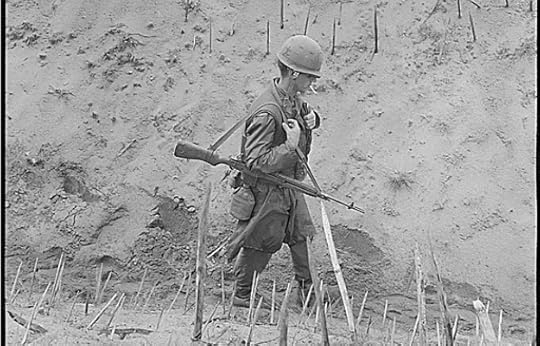My questions about the Vietnam War: I suspect there is a lot more to say about it

For a symposium put on recently by FPRI, I drew up a list of questions I have about the Vietnam
War. Here they are:
How
much new information about the war is coming out? Is there more to come? How is
it changing what we thought we knew? There has been a lot out of North Vietnam
over the last 20 years. So far, as one person at the symposium said, it is as
if our histories of the war were written by Custer.
Second,
to what extent do these new revelations challenge our basic assumptions about the war? For example, we often used
firepower lavishly in Vietnam. But what do enemy accounts and documents tell us
about our use of firepower? How much empty jungle did we kill? How many
civilians did we turn against us?
That
leads to a broader question. There is an assumption that for much of the war,
we were good tactically. Were
we?
When
Westmoreland said "counterinsurgency," what did he mean? He said he meant
"firepower." I see some historians these days waving memoranda they've found
saying Westy wanted COIN, and assume he didn't mean that. Such an approach
strikes me as a bit lacking in skepticism. Here's a surprise: Government
documents do not always reflect the truth, or even what the author really meant.
Officials sometimes have other purposes -- to set up a straw man, to record a
dissent, to show they are complying when they really are not, or perhaps to
cover someone's butt. Just as oral histories have problems, so do smoking gun
documents.
Generally,
can we learn more about what worked and what didn't? I think Mark Moyar is on to something. I
was struck, for example, that the Vietnamese army's official history of the war
concedes that the strategy of the imperialists
and the puppets worked very well in 1968 and 1969. Rice taxes
on the peasants were cut off, Viet Cong lived near starvation, and recruiting
went way down. Why were we unable to take
better advantage of those developments? So the other shoe for me is: How
bad were U.S. forces in that period? And how inept were some commanders in the
field that they could not push on that open door?
Related:
Were enemy forces just lying low in 1969 and 1970, waiting for the politics of
the thing to work out?
Finally,
some other, broader questions:
Wade
Markel wrote that in Vietnam, we developed "an Army that avoided error rather
than exploited opportunity." Is that correct? If so, how and when did it
happen?
Was
Vietnam a flawed strategy or poor operational execution? Or both?
Last
question: Is the military today telling itself a tale similar to the one it
told itself after the Vietnam War, that basically it did everything right but
the civilians screwed it up?
Published on March 01, 2013 07:29
No comments have been added yet.
Thomas E. Ricks's Blog
- Thomas E. Ricks's profile
- 436 followers
Thomas E. Ricks isn't a Goodreads Author
(yet),
but they
do have a blog,
so here are some recent posts imported from
their feed.



